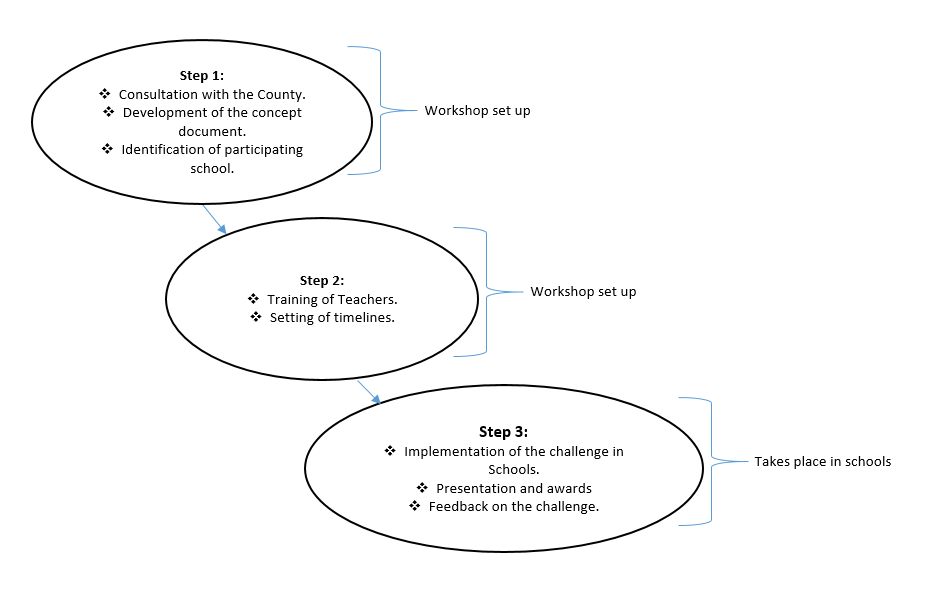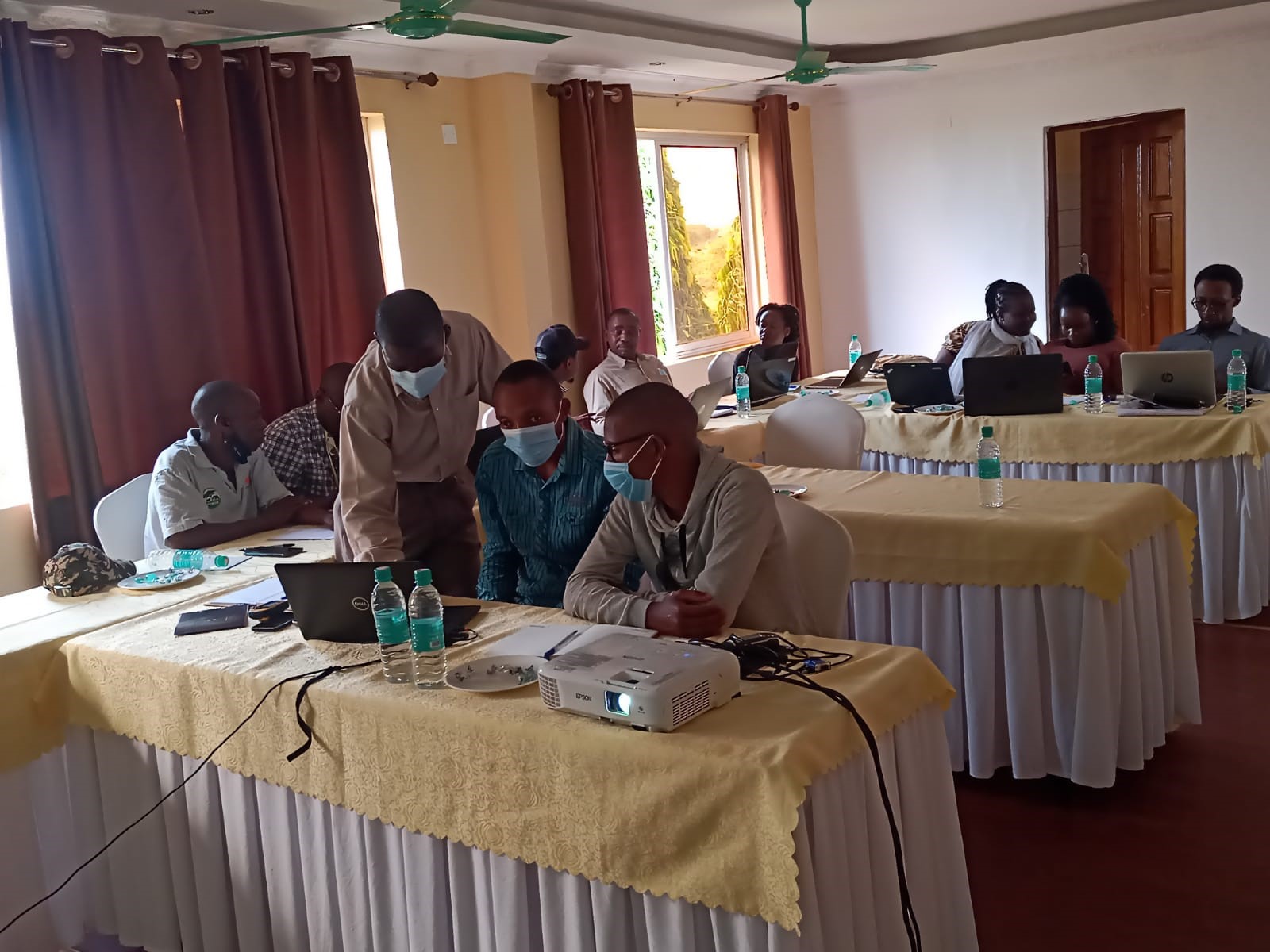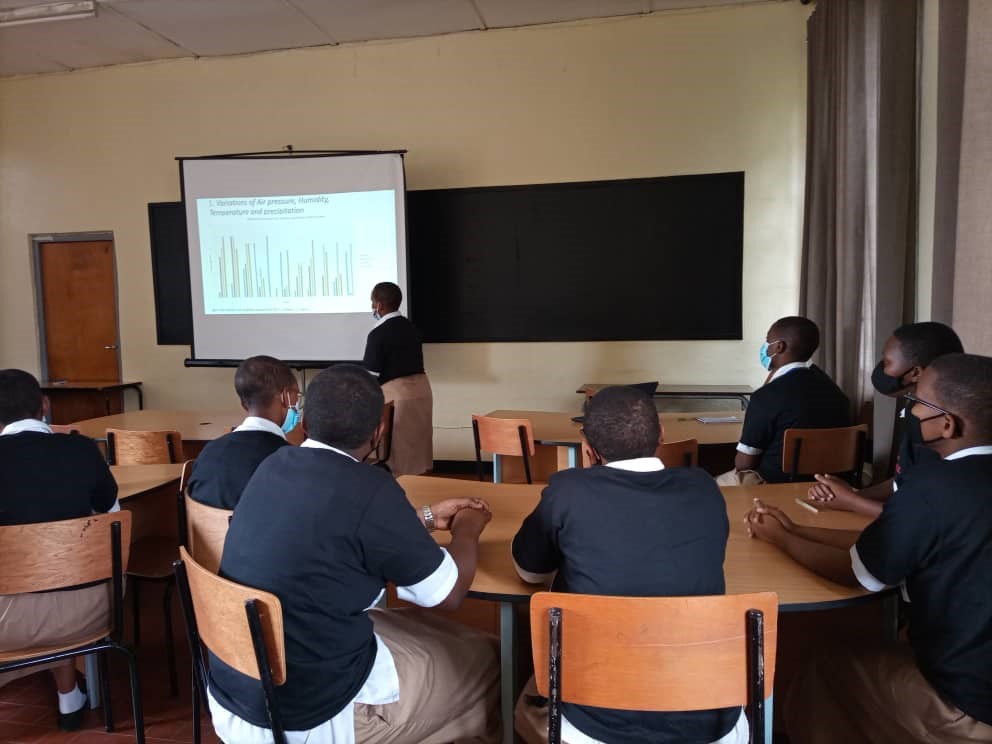The Regional Centre for Mapping of Resources (RCMRD) through the SERVIR Eastern and Southern Africa Project (SERVIR E&SA), with support from the United States Agency for International Development (USAID) and the National Aeronautics and Space Administration (NASA), is working with schools in Uganda, Rwanda and Kenya to mentor young learners and create awareness on environmental degradation and climate change using Earth observation (satellite) images and weather measurements. RCMRD runs an annual activity known as the RCMRD Space Challenge, whose aim is to equip primary and secondary school students with necessary skills and awareness to visually interpret features in satellite images and related weather pattern and trends, and thus contribute to improved capacity to understand environmental and climate-related issues. The activity also supports capacity in science, technology, engineering and mathematics (STEM) subjects.
The Space Challenge is implemented in three steps. In the first step, RCMRD consults with the country to draft a three year concept and lay down an implementation plan based on the school calendar. In the second step, participating schools are identified which nominate teachers who undergo training on a certain theme. The challenge is then executed in the various schools under the guidance of the trained teachers and anchored under STEM related clubs. Finally, the students present the results of the challenge to a panel of assessors who awards and provide feedback on the studies done. RCMRD has successfully implemented the first phase of the Space Challenge in Kenya and Uganda in partnership with the Ministries of Education, private sector and national space agencies (Kenya Space Agency for example) in the aforementioned countries.

Illustration of the RCMRD Space Challenge cycle
In 2021, RCMRD started the Space Challenge in Rwanda which was done in partnership with the Ministry of Education, Rwanda Education Board, and Rwanda Meteorological Agency, Rwanda National Commission for UNESCO (CRNU), Trans Africa Hydro-meteorological Observatory (TAHMO), and Albertine Rift Conservation Society (ARCOS). The RCMRD Space Challenge – Rwanda Chapter targeted secondary school students across Rwanda. Participating institutions came together in May 2021 to develop a 3-year Space challenge implementation plan for Rwanda. Key components of the implementation plan included: (i) Creation of the Secretariat that is chaired by Rwanda Education Board and deputized by Rwanda National Commission for UNESCO (CRNU) with RCMRD as a member and TAHMO as the secretary, (ii) Conducting the teachers training and, (iii) Implementation of the challenge in schools.
During the teachers training in August 2021, 30 schools were involved, and each school was represented by two teachers. This activity aimed to prepare students for the first round of the challenge. The teachers were taken through the RCMRD Space Challenge Concept and an implementation plan. They were also equipped with the necessary skills on understanding the following concepts: Basic Earth observation technologies, basic remote sensing, elements of visual image interpretation, introduction to weather data, plotting and simple analysis of weather data, and interpretation of the relationships between various weather parameters (temperature, air pressure, humidity, and precipitation). Consequently, the teachers are able to guide the students during the implementation of the challenge at school. Out of the 30 schools, 16 made it to the presentation and assessment level of the first round in the Challenge. Students who participated in this first round were drawn from the Science, Environment, and Geography clubs. The main objective of the Challenge was to determine the relationship between weather parameters (temperature, air pressure, relative humidity, and precipitation) and their applicability in daily decisions. Data for this Challenge were acquired from the TAHMO automatic weather station located at Groupe Scolaire Rushaki in the Northern Province in Rwanda. Ten students per school presented the results of their study to a panel of judges comprising of RCMRD, CNRU and TAHMO. The assessment of the student’s performance was based on submitted study reports, concept mastery and poster development and presentation.

Teachers training session in Kigali Rwanda
As a result of the practical sessions conducted during the first phase, a total of 160 students from the 16 schools were equipped with knowledge of how to compute trends and plot air pressure, humidity, temperature, and precipitation in various zones and how to determine climate change drivers and applications. The students also learned the link between the weather parameters. The outcome was evident through the successful completion and presentation of the Challenge by the students. All the schools were awarded trophies for the successful completion of the Challenge.
The envisaged benefits of the Rwanda Space Challenge are to promote and support the application of automatic weather station data in secondary schools. Through the RCMRD Space Challenge, it is expected that the secondary school students will acquire skills to use the data collected from the Weather Stations to address societal challenges, and the knowledge on EO and geospatial data and its applications. Partnerships among various government and non-governmental organizations, private organizations, inter-school engagements are encouraged in the Space Challenge program to promote the use of data to drive decisions and to equip young learners with motivation to pursue STEM fields in their careers. With a long-term goal of enriching environmental and climate data, the Space Challenge program also endeavors to showcase to the secondary schools participating in the Challenge the importance of data collection as well as the need for analysis and interpretation of the data collected, for decision making.
A photo of graphs showing the relationship between weather parameters, prepared by Groupe Scolaire Rwamiko School in Gicumbi District

Presentation session at LNDC (LYCÉE NOTRE-DAME DE CÎTEAUX)













